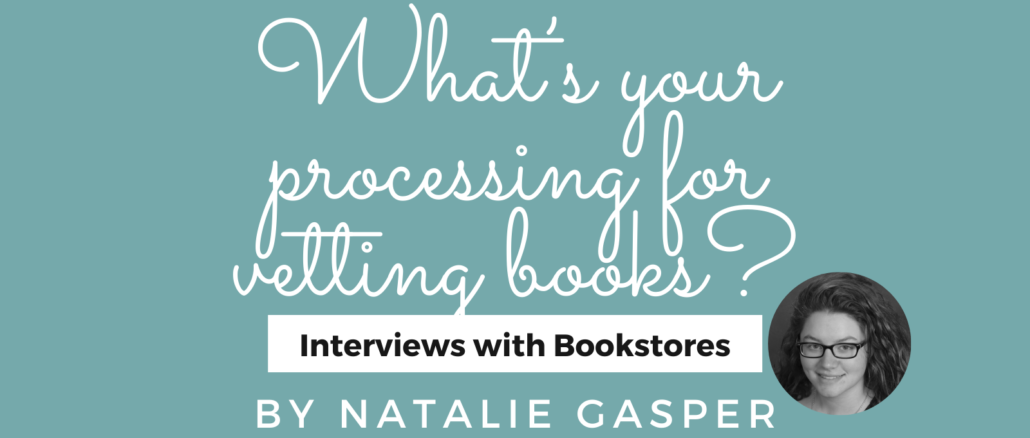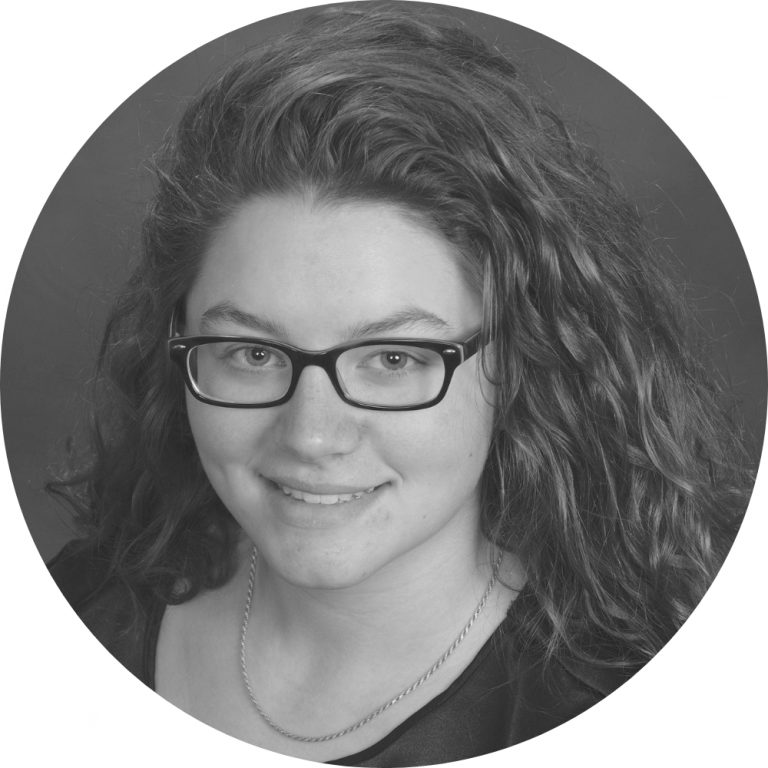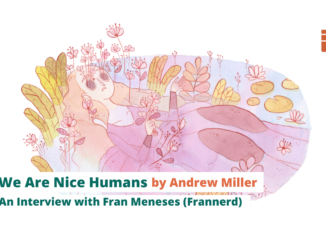
In this six-part series, we asked bookstores across the United States to answer some of your burning questions.
- How can authors get their book on your shelves?
- Do you accept self-published authors? In what situations would you consider this?
- What’s your processing for vetting books?
- How can local authors develop a relationship with you?
- Do you host author/book signing events/readings?
- Is there anything you would recommend to authors/publishers about how to best position their books in the market?
Part 3 below gives you an inside glimpse into the book vetting process of 49 bookstores across the country.
Part 3: What’s your processing for vetting books?
Colorado: Old Firehouse Books
We’re not supposed to, but every one of us judges a book by its cover. So we definitely are looking for books that not only have a professional-looking cover, but a book that feels good in your hands. There are also those things a book should have to make it functional: a barcode, a spine printed with the author and the title, a description on the back, etc. This makes things easier for our booksellers as well as the customer.
We also will take books based on their content and genre. Our booksellers know what our readers like and what kind of books they are looking for. Understanding your readership is important. If a book doesn’t have an audience with us, we won’t carry it. The bookstore doesn’t leave us much time in a day to read through books we are considering, but we do flip through a few pages, read a bit here and there, just to make sure the writing is up to snuff.
California: Books Inc.
The easiest way to vet a book is its availability. If we can’t get it via the publisher, Ingram, or the author themselves, then it’s tough for us to say yes to that book. Other than that, each of our stores has a buyer that caters to their store’s communities and neighborhoods, they are the ones that make the final decision on whether they think the book would actually SELL at their location.
The last thing we want to do is enter into a consignment agreement with an author and not sell their book. The goal is to sell the book, not just display it! The easiest example is, let’s say your book is about the history of Boston. Ok, some people might find that really interesting, but it’s not going to be a huge seller.
However, if you say, “my book is about Boston, and co-written by three Bay Area authors who have lots of family and friends out here in the Bay Area and I know they’ll be coming out to support us by purchasing this book through Books Inc.”, then we might be more inclined to enter a consignment agreement with you. Again, it’s not about the merit of your book, but more about whether we think it could sell in our store.
Nevada: The Writer’s Block Book Shop
As I briefly mentioned, we review books one season in advance, often with a sales rep. Over time, we build relationships with particular publishers and have a sense of which books are likely to perform well in our store. I look to the author’s previous sales, comparable titles, and sales rep input when making purchasing decisions.
The design and presentation of the book is also crucial. Sometimes, I’ll request an advance copy so that I can dig deeper into a title—particularly if we are considering purchasing a large quantity, or featuring the book for a subscription program.
Of course, I also read book reviews and observe trends from other stores, and on social media, to make reactive buying decisions after books have already been released.
Utah: The Book Bungalow
If you’re talking about traditionally published books, I read a lot of Advanced Reader Copies, plus listen to publishing sales rep presentations, as well as pay heed to starred reviews in Publishers Weekly and elsewhere. They have to pique my interest and/or appeal to my customer base.
If you’re talking about self-published books, they need to look pretty professional. Because of all my reading for traditional titles, I don’t have time usually to read the self-published books; I generally take them as they are as long as they look like they’ll fit on our Local Authors Shelf.
Alabama: Ernest & Hadley Booksellers
I can tell just from looking at the cover and reading the first three pages whether the book should be in the store. Good cover design is a must with high quality images or art work. Layout of the book is also critical and since most authors use MS Word to lay out their work it is imperative that they finesse that program. Most don’t. Also, if the book has not been copy edited, it would not be considered.
Utah: The Printed Garden
Much of it is my own reading and communication with a network of friends, family, store guests, sales reps, librarians, etc., about their reading, and what they’ve really enjoyed. Sometimes there are secondary vetting methods I use, like a trusted publisher.
There are a handful of publishers who I will purchase fiction from even if I haven’t had the opportunity to read it because they’re proven themselves to be a trustworthy source of beautifully written fiction. A couple that come to mind right away are New Directions, Grawolf, Milkweed Editions, Dzanc Books, Pushkind Press, and Other Press. These are all smaller publishers, but are publishing houses that consistently publish really really good books.
California: Skylight Books
The book buyer’s job seems really fun, who doesn’t want to learn about all the new books coming out and pick and choose which ones to celebrate? But it is a very nuanced and difficult job to balance the amount of shelf space we have, the amount we can afford to spend, and keep track of what kind of books are doing well for us at any given time. Taking books on consignment seems easy but is actually more of a headache than just buying books straight out and for us to take that kind of chance means we have to be very picky.
New York: Postmark Books
When we consider stocking a book we’re trying to answer one huge question: can we sell this? There are a lot of criteria for answering it, most of them found in split seconds as you flip through a book’s sales material. But the first gate to pass is cover art. It has to have a professionally designed cover and, in our subjective opinion, a beautiful one. This is one of our store’s big selling points and something customers tell us is a reason they come in to shop.
After that we’re looking to see if it’s an author we’ve sold well before, if the book has gotten advance praise in trusted review outlets, if there’s a decent marketing strategy to drive customers into the store looking for it, if it’s a genre we do well with, and if the story and themes are interesting to us and our customer base.
We also value diversity and aim to look beyond straight white cis-gender authors and protagonists (those are dominant in publishing). We put in some effort to find books by and about other people that might not be getting as much press or notoriety.
California: Borderlands Books
When we receive a book, our first step is to assess the production values. Assuming it meets industry standards, we will then read a few pages. Assuming that the writing is professional quality, then we’ll read more extensively and determine if it is something that we feel will sell to our audience. If so, we’ll contact the distributor for the title and order one or two copies. If there is no distributor, we’ll contact the author directly.
Georgia: Hills & Hamlets Bookshop
First, you need to make sure your book is a good fit for the store you are asking to carry it. Our store is specialized in nature, food, art, health, etc., so when you contact us asking to carry your book that isn’t remotely connected to our specialty, it communicates to us that you haven’t done your homework and we’re just a number to you, a name on a spreadsheet.
If you’ve checked to make sure your book is a good fit for our store, and it is available through Ingram or other bookstore distributors, at a standard discount, THEN you should send or drop off a free review copy. I appreciate it when authors give us a copy and say “take this one and if it sells consider reordering it!”
Nebraska: Chapters Books & Gifts
I encourage authors to familiarize themselves with my store and the types of books we carry. Most importantly, their book needs to be well-written and appealing. Their book also needs to be a good fit with our inventory, be professionally produced, and be priced competitively with other books. If it’s not a topic or genre we sell, I’m not likely to accept it. If the author tells me to review their book on Amazon or sends me a link to their book on Amazon, I won’t consider their book unless they have a strong connection to our community.
Pennsylvania: City Books
Every independent bookstore, whether new or used, takes on the character of the person who curates the books. Unless I know I have a regular customer who will be interested in a book, I don’t except a trade-in unless it’s a book I would want to read myself. I very rarely take chances on something that doesn’t interest me. City Books is only about 700 ft.², so every inch of shelf space must earn money. If a book does not sell within about six months, it gets removed and something else goes in its place.
Tennessee: Reading Rock Books
The first thing I do is look at the quality of the printing. If the outside of the book and the format of the printing is subpar quality, it doesn’t matter how great the contents are. A book that doesn’t look good on the shelf is not going to sell and isn’t worth my time.
If the outside of the book and the format of the printing meet my expectations, I will read the book. If I’m interested at that point, I will meet with the author to discuss their sales strategy.
Washington: BookTree
I know my customers pretty well. So does the book look good and professional? Is it something my customers might like to consider? Is the author doing an event at the store? Is the author promoting in his marketing that the book will be available at this store? Do I want to read the book even if I don’t have the time in most cases? If I want to check it out… I assume at least a few of my customers will want to check it out and that’s a good thing.
Colorado: Barbed Wire Books
I don’t have the time or desire to read all books left for my consideration. I eliminate all Amazon. I focus on local authors. The most important question I ask is, “Who edited this book?” Once a book proves itself, though sales or awards, etc., I will stop doing consignment and buy the book wholesale.
Massachusetts: The Bookloft
We have one staff member who handles all our consignment authors. We will carry most any local authors’ book on a trial basis. There is little “vetting” involved, provided it appears attractive, professional, and is not obviously badly edited or made.
Connecticut: Barrett Bookstore
We work directly with publishers, read as much as we can, and look at our data/historical figures to make informed decisions about what we place on our shelves.
North Carolina: Malaprop’s Bookstore-Café
We look at content, of course, to make sure that the content suits the store and our values. But beyond that, we want the book to look professional, too. A great guideline is the Independent Book Publishers Association’s (IBPA) Industry Standard’s Checklist (ibpa-online.org/page/standardschecklist), which really breaks down what makes a professional looking book.
Indiana: Three Sisters Books & Gifts
I do check publications like Foreword and sometimes see something that really grabs me. I also read emails from authors and try to take time to respond.
If the book is from a publisher we usually deal with, I will order from them if I think there will be a good response.
Minnesota: Beagle and Wolf Books & Bindery
We want books with the title on the spine, an ISBN number, bar code and price printed on the book and again, not printed by Amazon. We’re most interested in Minnesota authors/themes. Authors should not expect that we will read or advertise their books.
Louisiana: Cavalier House Books
We have a pretty comprehensive application process. It starts with a questionnaire and a review of the book and then takes one of several different paths depending upon quality and marketability.
New Hampshire: A Freethinker’s Corner
I try to read every book (or at least a good portion of it) to see if it’s a good fit for the store, “self-ready” (free of errors), and is a cohesive story. However, there are occasions where if I get multiple customer requests for a particular local author, I will research them and if I believe their books will meet my standards without reading them, I will take the chance.
Minnesota: Fair Trade Books
Edelweiss, publishing rep selections, classics, bestsellers, and vintage books give us perspective on what our readers wish to see in stock.
Ohio: Wheatberry Books
Our selection is carefully curated to offer a wide variety of books in a fairly small space. Quality over quantity. I choose books based on what I know our customer-base tends to pick up, what my booksellers and I love and can hand-sell, and what I think our community needs exposed to.
Mississippi: Lorelei Books
I evaluate cover design and page design then read the first chapter, assessing primarily the quality of copyediting and basic writing strength.
Texas: BookPeople
As a buyer, I rely on what our customers are buying, what the staff’s reading tastes are, what sales reps recommend, and always keeping an ear to industry news and social media buzz. There’s no exact formula, but a book should hit at least one of those benchmarks.
Missouri: Skylark Bookshop
We don’t have a formal vetting process for self-published books, but we do check that all books are of a certain quality in terms of binding, presentation, materials, etc.. We would reject books if we found their content objectionable, but that situation has not arisen so far.
Nebraska: The Bookworm
I don’t really have one. If I think that the book has an audience here, I will generally accept it. I am sensitive to language and have been known to refuse books with inappropriate torture, bondage and/or sexual content. I don’t have an “Erotica” section, so I would not accept any Erotica Fiction titles.
Texas: Blue Willow Bookshop
Reading! And knowing what sells here in the shop. As for consignment, we usually have a staffer read the book or a portion of the book to make sure it is up to our standards. There is so much competition and so little space that we do have to reject some.
New Mexico: Bookworks
The book needs to have a good local market for us or a national following that will direct people to our website to buy books. Each book we take on is an investment for us, especially now when we have reduced our staff by 75%.
New York: Rough Draft Bar & Books
We ask authors to leave books with us for a few days so that we have a chance to look through them; to research their availability; and to consider if they would do well at our store. If they’ve been published and/or reviewed, that always helps!
Oregon: Chapters Books & Coffee
Just my gut. I take a book and try to look at it from the customer’s perspective to see if it is a book I think they will pick up and investigate. My sales are probably 75% impulse buys so the “curb appeal” is very important to me.
New York: 192 Books
Pitches are handled by the buyer, who assesses whether the book is a fit with the profile of the store and has market potential. Excerpts are helpful – I don’t often have time to read full review copies of anything sent to the store – as well as blurbs and praise from other writers and booksellers.
Ohio: The Book Loft
First, to be considered for The Book Loft’s consignment program, authors have to be from Ohio. If that criteria is met, we have a consignment agreement that states the terms. The book’s spine must have both the author’s name and title of the book printed clearly
Arkansas: Dog Ear Books
We like to look over them and make sure the quality is up to par and that they’d have any chance of selling in our store.
Massachusetts: Eight Cousins Books
Self-published authors need to have a local connection. Both book content and an author’s lived experiences are accepted.
Florida: Bookstore1Sarasota
Paying attention to reviews, reading of ARCs by our knowledgeable staff.
Michigan: Canterbury Book Store
We read the author or marketer’s description of it, and if we like it, we get in a copy or sample of the book to read ourselves.
Indiana: Indy Reads Books
We will take at least a few copies on consignment from nearly anybody with an accompanying event.
New York: Berl’s Brooklyn Poetry Shop
We are researching all the time and usually don’t carry more than one or two copies at most of any particular book, re-ordering as we can to meet the interests of our community.
Missouri: Subterranean Books
We don’t vet local self-published books. If an author wishes to take part in our consignment program, they can.
South Carolina: Fiction Addiction
Any local author can place their book on consignment if they pay the fee. Non-local self-published authors are vetted through our partnership with DartFrog Books.
New Hampshire: Gibson’s Bookstore
We will take a book without reading it for a local self-published author. It’s pretty much pass/fail.
Texas: The Twig Book Shop
We have a form on our website under the tab for Authors. The author fills out that request, pays a $20 fee, and sends their book to us or drops it by. I have an employee in charge of these submissions. She reviews them.
New York: Off the Beaten Path
Reading the synopsis. Reading other reviews or blurbs. Checking availability. Reading or at least skimming the book for content.
South Carolina: Main Street Reads
Quality, quality, quality. Books with poor formatting or extensive errors will be rejected simply because that’s not something we’d like to sell to customers.
Virginia: Winchester Book Gallery
We keep abreast of what our customers are reading and what they’re asking to see, as well as our own interests. Our goal is to have a stock that appeals to every member of the family.
Wisconsin: Chapter2Books
We request and read the book first. We’re a general store so all genres welcome.
Pennsylvania: Bindlestiff Books
Primarily we follow reviews and other media, and listen to our customers.
INTERVIEWER
Natalie Gasper is an internationally performed poet whose work has appeared in The Write Launch, The Hickory Stump, Sheila-Na-Gig, Noon by Arachne Press, and ellipsis…literature & art, amongst others. She works as an interviewer for The Nasiona and is a developmental editor for Envie, a Magazine for the Literary Curious.




7 Trackbacks / Pingbacks
Comments are closed.